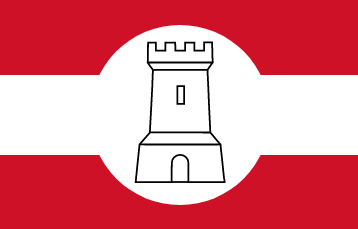«12. . .164165166167168169170. . .213214»
Yay WOTD!
AUR:
Sokka
Sökkä (Karalinne)
ARU
Sloikkä (short - Soik)
Upper alterac and Kuerhyedeenistan
Hello. I'm really concerned about Celtic languages, especially Irish. Is there any sources to learn Irish?
It was a joke that I didn't even notice that I posted it myself...
But soon... We'll see.
Upper alterac and Kuerhyedeenistan
There's been a language without verbs, yes... but has there been a language without nouns?
PS: I am not gonna make it. I've added a paucal number so I will retreat into the shadows for 1 year
Kowani and Lower alterac
I'm sure there has been conlangers attempting to do that.. but have they succeeded? Probably not. XD
Do you have dual and trial as well?
Kowani, Lower alterac, Old zealand founder, and Not Pacific
no
if i do add it, i gotta add quadral and etc
Word of the day:
Doahilkí - creative
A compound of doahya - art, creative work; and ilkí - smart, competent, professional. So basically art-smart. I'm satisfied with that word formation. :D
Post self-deleted by Lukingbridgard.
Datganiad gorffod o'ilgadarn bodlaith.
Statement compulsory of'reconfirmation existence.
Obligatory statement of reconfirmation of existence.
Upper alterac and Kuerhyedeenistan
Nata antä!
He exists!
Upper alterac and -Astoria-
Auruna, hva zajn de liit geehin?
 Auruna, how's the song going?
Auruna, how's the song going?
Leita hevä.
The song is going well.
Although after what Kongfuzia said, that their translation doesn't follow the melody, I am not sure if I can include their lines.
(Even when I checked that some of the lines can match with slight difficulty)
Anyway, I'll post it soon after I have a lot of free time so I can work on the formatting.
Kowani, Richtlant, Lower alterac, and Kuerhyedeenistan
Assuming by “grammar” you mean an instruction book:
Start with sentence structure and basic vocabulary. (Pronouns, household objects, verb conjugation rules)
If you’re dedicated, a pronunciation guide, IPA if you know how.
Hélot! Güd ist yousse ếll?
Na.
No, not yet.
1. Bhauttan uses the bound suffixes -Vḥ to mark nominative nouns, -s to mark absolutive nouns and transitive verbs, which are agglutinative
2. All others like the perfective aspect or locative case are marked using postpositions/clitics, not attached suffixes, which is an isolating feature
3. Similarly, English has some bound suffixes, like possessive 's and plural -s
Considering my language has _some_ bound morphemes but still mostly using unbound morphemes/clitics, do I say that it is isolating or agglutinative?
ངཧ༌ནོ༌ཀྱི༌བ༌ཅྱའཟ༌ཀས༌སྱེའསཟ༌ཀ༌། ནཽ༌ཊ༌ངཧ༌ཀྴོའ༌དྷེ༌། བུ༌དྷ༌ཡུཾ༌ཊ༌བྷཽ༌ཊ༌ཀྱི༌ནཽཧ༌ང༌ཊ༌ཀྴོའ༌། བུའ༌ནཽ༌ཊ༌ངཧ༌ཥཽཟ༌ཆུའས༌ཀེསཟ༌ཀ༌༔ ལཻང༌ཏོཟ༌ ཧྱིཧྱིཧྱིཧྱིཧྱིཧྱིཧྱིཧྱི ༼ གེ ༠ ག ༽
Understood. I would thank you two, but in Bhauttan Buddhist culture, you two can thank me as I provided you with an opportunity to do good 'hyihyihyihyi' *tibetan emoticon*
Ngah nau kyi batsyā̀ kas syḕs ka. Nau ṭa ngah kṣō dhe. Budhayuṁ ṭa Bhauṭa kyi, nauh nga ṭa kṣō. Bū, nau ṭa ngah ṣàuthyū̀s kès ka, laing tò hyihyi (tibetan smily face)
I just understood what youre saying. I would smile at you. In Buddha's belief of Bhautta, you smile at me. Foundation: you, I gave time of ability to do kind
elbow breathe
I am interested in making a factbook where u could see basic details of ppls langauge here, like wat their language looks like, n dominant word order. I can also do a bunch of pie hcharts abt how much languages are SOV n stuff
R u interested ? Take a look
Name in own language:
Name in own language (transliterated):
What script does your language use?:
Language family:
Number of speakers:
Translate the following: "I saw the mother, and in her arms was a small baby that cried."
Literal translation:
What script does your language use?:
Why did you make this language? Hobby, worldbuilding, school, etc.
How developed is this language?: Recently started, halfway complete, mostly complete, functional, etc.
How long has this language been developed?:
Dominant word order: SOV, SVO, VSO, VOS, OSV, OVS, topic-prominent, no dominant order, other (define)
What is this language's typology? (agglutinative, fusional, polysynthetic, isolating, analytic)
A priori (made from scratch) or a posteriori (based on another language):
How many words are in your vocabulary?:
Other interesting features of note:
Name in own language: گٗمْ سِنْدھُتےشْ
Name in own language (transliterated): Gom Sindhuteṣ
Language family: Indo-European > Indo-Iranian > Sindhic
Number of speakers: 250 million
Translate the following: "I saw the mother, and in her arms was a small baby that cried."
ماتامامْ اہاوکٗمْ، ح اسْمِنْ باتھےصُ امْ، رِنْ کْسُدْ شِشُچمْ اوِدِمْ۔ Mātāmām ahāukoṃ, ha asmin bātheṣu am, rin kṣūḍ śiśucam avidiṃ.
Literal translation: This mother, I have seen, and at this arm's inside, this cried small-ing baby existed.
What script does your language use?: Arabic Nastaliq script, with modifications to accommodate extra vowels
Why did you make this language? Hobby and worldbuilding
How developed is this language?: Recently started
How long has this language been developed?: I literally started this language a week ago
Dominant word order: SOV
What is this language's typology? Fusional
A priori (made from scratch) or a posteriori (based on another language): A posteriori, based on Sanskrit
How many words are in your vocabulary?: 500
Other interesting features of note:
- Prakrit uses a system of ablaut to mark tense or aspect
- Sanskrit cases were lost, but new cases were developed from demonstratives in a process similar to Romanian
- Prakrit inherited many traits from neighbouring Bhauttan, like a stative-active morphological alignment, noun compound formation, and a pitch accent
- Prakrit, instead of third person pronouns, has demonstrative pronouns that can be used to mark obviate/salient nouns
- Adjectives and relative clauses are treated like verbs, and are marked by being turned into participles
- Because of its inconsistent design, Prakrit is often written using the Naskh script in computers because its Nastaliq script is difficult to render
Auruna, Lower alterac, Fontcollina, and Kuerhyedeenistan
«12. . .164165166167168169170. . .213214»
Advertisement
















